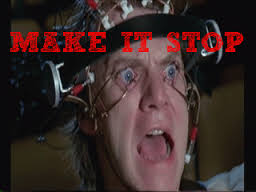
Why Are So Many Artists Giving Co-Writing Credits to Others?
We’re running out of melodies. After almost seventy years of modern rock and popular music, it’s become insanely hard to come up with a song that doesn’t sound like something that’s already been released. Most of these sonic similarities are unintentional while others–let’s call them homages–are grateful shout-outs to those who have come before.
In both cases, though, lawyers and lawsuits are increasingly involved, resulting in plagiarism and copyright infringement action against the performer/composer/publisher of the newer song. The result can be devastating.
Just ask Robin Thicke about the whole “Blurred Lines” fiasco. When it was ruled that Thicke’s song was too similar in feel to Marvin Gaye’s “Got to Give It Up,” I predicted that this would be the beginning of ambulance-chasing lawyers who would happily help older artists get money from the writers of new releases. Sadly, my prediction is coming true.
Not only has there been plenty of legal action (cf. Tom Petty vs. Sam Smith, Ed Sheeran vs. a couple of songwriters, Ed Sheeran vs. TLC, Mark Ronson and Bruno Mars vs. The Gap Band) among many others), but some artists have been proactively offering songwriting credits to songwriters who could find themselves aggrieved.
For example, Taylor Swift granted Right Said Fred co-writing credit on “Look What You Made Me Do” because the worry was that some of the patter sounded too similar to “I’m Too Sexy.” Then there’s Miguel who gave Billy Corgan partial credit because their hit “Leaves” sounded too much like “1979.”
The Guardian has this excellent explanation of what’s going on.
“In order to clear a sample, you technically have to clear both the master use and the composition,” says Barry Simons, a San Francisco-based entertainment lawyer. “So there’s two clearances.” Or to quote bellowing chanteuse Jessie J, it’s all about the money, money, money. Simons says that an artist is able to bypass paying a music publisher for the underlying composition by recreating the sound recording; the only payment is to the record label for the masters, therefore avoiding copyright infringement.
As more and more artists continue to mine the 80s and 90s for inspiration, expect this issue to grow bigger and bigger.



